Blog Archive: 2017
2017
December 14, 2017
By Galina Zelenina
On a gloomy October day in St. Petersburg, I was having coffee with a local LGBT activist at a half-clandestine queer studies conference. Just a few months before, the State Duma Deputy, Yelena Mizulina, had authored her infamous ban on "gay propaganda" (whatever that means). At the time, I was working on a series of essays for an independent internet journal, one of the few respectable venues in the Russian internet that straddles the boundaries between academic and socio-political debate.
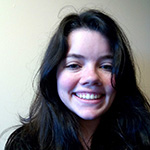
Violet Fearon
December 6, 2017
By Violet Fearon
This year, HBI is thrilled to have a number of students working in various positions to help the institute's core mission of promoting research on the intersection between Jews and gender. Learn more about the students of HBI.
November 28, 2017
By Rebecca Cypess
When, in 1798, the Jewish writer Wolf Davidson published his treatise "On the Civic Improvement of the Jews," he joined an ongoing discussion among both Jewish and Christian thinkers of the Enlightenment concerning the merits of Jewish emancipation in Prussia and the participation of Jews in civic and cultural life. By way of justifying his agenda of emancipation, tolerance, and citizenship for Jewish residents of the kingdom, Davidson cited a long list of Jews, from philosophers and educators to practitioners of the mechanical arts, who were already making significant contributions to Prussian society.

Violet Fearon
November 13, 2017
By Violet Fearon
Before I gain access to the carefully stored correspondence of Esther M. Broner, I'm given a few instructions: no pen, keep the documents flat on the table at all times, file everything back exactly in the order you found it. In this quiet room, filled with books and cardboard boxes, it feels a little like I'm about to undertake some kind of secret mission. The first letter I examine is dated from the early 1960s; it feels brittle and thin. Even if I hadn't been briefed on proper handling procedure, there's something about old paper that tells you to treat it with care.
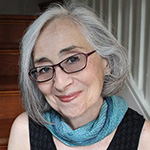
Marcia Falk
November 2, 2017
By Amy Sessler Powell
"Let us bless the source of life that brings forth bread from the earth" or " Our praise to You, Eternal our God, Sovereign of the universe, Who brings forth bread from the earth?" The first, a translated version of "hamotzi," the Jewish blessing before the meal, comes from Marcia Falk's "Book of Blessings." The second is the traditional translation of the same prayer, in this case provided by ReformJudaism.org.
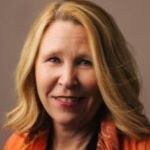
Nina Lichtenstein
October 5, 2017
HBI recently caught up with 2010 Scholar-in-Residence Nina B. Lichtenstein, who earlier this year published "Sephardic Women's Voices: Out of North Africa," a project she started at HBI. Lichtenstein is a writer, teacher and storyteller. She holds a PhD in French and is a 2010 HBI Scholar in Residence, winner of an HBI Translation prize, member of the HBI Academic Advisory Committee and an HBI Research Associate.
September 15, 2017
By Penina Weinberg
A few years ago I started a group in Boston aimed at providing space for LGBTQ Jews to gather for learning and worship in a way that would enable us to bring our full selves to the table. We named ourselves Ruach HaYam, Spirit of the Sea, after the sea surrounding us in Boston, and for the sea across which Miriam and Moses led the children of Israel. Ours was not a unique idea at the time, but as we are completing our fifth year at Ruach HaYam, I find it becoming harder, and therefore more essential, to find spiritual community dedicated to queer Jews.
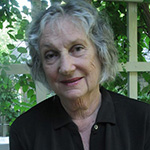
Gabrielle Gropman
September 8, 2017
By Gabrielle Rossmer Gropman
I just finished a large batch of "krokerle" from "The German-Jewish Cookbook." When chopping the hazelnuts, I automatically went to my mezzaluna, called a "wiegemesser" in German, that antique wood-handled steel half-moon knife that chops expertly. Halfway through this exercise I realized — "Wait a minute, why am I not using my Cuisinart?" Why, indeed?
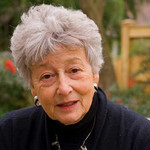
Ruth Nemzoff
August 22, 2017
By Ruth Nemzoff
Several years ago, an African-American student at Brandeis asked me, "What was it like growing up white in America?" My response was spontaneous. "I wouldn’t know. I wasn't White then. They were killing my people in Europe. Here, they were banning us from entering the country. For those here, they limited our access to universities, country clubs and upscale suburbs." My student was stunned.
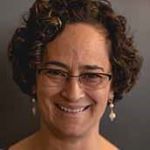
Gila Silverman
August 3, 2017
By Gila Silverman
Everyone who says kaddish for a parent for the full 11 months required by Jewish tradition has stories. Most people have at least one story of being welcomed at a synagogue far from home, feeling supported in their grief by the strangers in the minyan. But for women who say kaddish, there is also another kind of story. Most of us have at least one story of feeling uncomfortable or excluded, of a time when we were forced to confront the deep gendering embedded in Jewish tradition.

Elana Luban
July 25, 2017
By Elana Luban
When I first heard about the annual Gilda Slifka summer intern's trip to Mayyim Hayyim, I wasn't quite sure what could be groundbreaking or ideologically feminist about a mikveh. My first two mikveh trips shaped my life and my Jewish identity. But since I was 7 years old, I'd only been to a mikveh to kasher dishes, and the trips didn't feel very special. This trip was entirely different.
July 17, 2017
By Elana Luban and Amy Powell
Every summer, HBI welcomes interns from across the country and world who complete original research related to the HBI mission of fresh thinking about Jews and gender worldwide and support the work of scholars affiliated with HBI and Brandeis. During the eight-week program, the interns also attend educational lunch sessions with scholars, visit Jewish sites of interest in the Greater Boston area including Mayyim Hayyim, and a walking tour of Jewish Boston. The Gilda Slifka HBI Summer Internship is supported by a generous gift from Gilda Slifka. Meet the 2017 interns and their work.
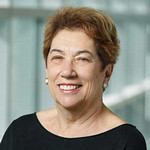
Shulamit Reinharz
June 30, 2017
By Shulamit Reinharz
On June 17, 2017, I turned 71 years old. The women's movement taught me to state my age with pride. Just after my birthday, I addressed the HBI Gilda Slifka Summer interns whose average age is about 21, a gap of two generations. When I retire today, Lisa Fishbayn Joffe, SJD, who represents the generation filling this gap, will become my successor as director of the Hadassah-Brandeis Institute.

Elana Luban
June 19, 2017
By Elana Luban
What happened when interns and staff from the HBI and the Jewish Women's Archive gathered to reflect on the text of the second commandment using the backdrop of Helène Aylon’s provocative exhibition in the Kniznick Gallery, "Afterword: For the Children?" They brought a modern twist to ancient text, examining "consequences" into future generations that ranged from illegal immigration to pollution to incarceration.
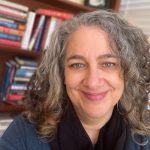
Terri Brown Preuss
June 7, 2017
By Terri Brown Preuss
Sitting in the quiet car of the New York to Boston Acela last Friday, bumping along at 150 miles per hour, I could not believe the spark of creative energy flowing within me. As the new national director of HBI Conversations, I had just completed my first Jewish Book Council (JBC) "Authors on Tour" conference. I was moved by both the authors I heard and the conference attendees with whom I interacted, 21 of whom were HBI Conversations volunteer site coordinators.
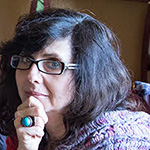
Joanna Michlic
May 25, 2017
By Joanna Beata Michlic
The period, 2010-17, has witnessed a swift turn to the right in politics and culture in post-communist Eastern Europe, accompanied by intensified attempts at assault on a critical history writing field about the Holocaust that has developed for the first time time in the region, in the aftermath of the political transformation of the late 1980s. In fact, at present we can talk about "a quiet, sinister war" launched against professional historians, institutions and nonprofit organizations that promote a nuanced image of a collective past revealing both glorious and shameful pages of national history.
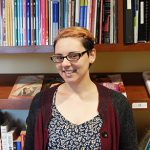
Ruth Fertig
May 11, 2017
By Ruth Fertig
With Mother's Day approaching, it's time to celebrate our loving, giving, assertive Jewish mothers. Much of what I look up to in my own mother comes out of her Jewishness, but mainstream television would have the world believe otherwise about Jewish mothers. For a long time, American Jewish mothers have been shown as overbearing, pushy, and unpleasant to be around. However, some shows are beginning to reclaim this stereotype and give it a positive twist.

Joanna Michlic
April 27, 2017
By Joanna Beata Michlic
I am convinced that what I call, "the current children's turn" or "the renaissance of children's experiences" in the Holocaust studies and post-Holocaust Jewish social history gives us not only new avenues to explore previously ignored subjects about the lives and (self)-representations of young individuals and the smallest social unit — Jewish family, but that it also throws a new light onto the "big historical questions."
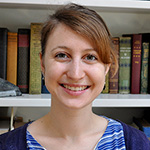
Geraldine Gudefin
April 21, 2017
By Geraldine Gudefin
This blog is the third of three blogs on the subject of laïcité (French secularism). The first was "Mister Prime Minister, Don’t Liberate Us": Secularism and Muslim Women in France" and the second was "French Jews and Muslims on the Move: Is Laïcité Prompting Emigration? Part 1."

Geraldine Gudefin
April 13, 2017
By Geraldine Gudefin
This blog is the second of three that will appear on the subject of laïcité (French secularism). The first was "Mister Prime Minister, Don’t Liberate Us”: Secularism and Muslim Women in France."
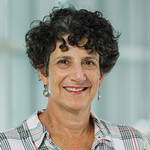
Amy Powell
April 6, 2017
By Amy Sessler Powell
What do Jewish women comedians share in common with niddah, the Hebrew term describing a woman during menstruation? What does Klezmer music as a stage for women's expression share with Jewish feminist underground comics from the 1970s or artistic reinterpretations of Biblical women like Miriam and Leah?
March 23, 2017
By Ruth Nemzoff and Janet Freedman
An op-ed in the New York Times by Emily Shire, Bustle politics editor, Does Feminism Have Room for Zionists, and a response in the Nation by Palestinian-American feminist activist Linda Sarsour, "Can You Be a Zionist Feminist? Linda Sarsour Says No," prompted a national dialogue on the subject. Ruth Nemzoff and Janet Freedman share new views on the subject.
March 16, 2017
By Michelle Mann
I arrived in the square, gingerly eating my prepackaged ice cream cone and feeling exposed as I walked past the bored shop owners with my light tunic, blond hair and loose cropped pants. In Algeria, a country with strict visa requirements and very few tourists, foreigners are never anonymous, especially not if they are walking in the historic neighborhood streets between Rue Didouche, Moustapha Pacha hospital and the Algiers train station on a quiet Friday after prayer time.
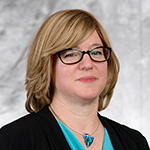
Laura Leibman
March 6, 2017
By Ruth Fertig
In America right now, race has become a deeply relevant part of our national discourse. Today, convention dictates racial categories and we tend to use appearance as a superficial classification system. But this was not always the case — at one point, race was mutable, and depended as much on factors such as one's class, military service, and religion as on appearance and background. Laura Leibman of Reed College received a 2015 HBI Research Award for an ongoing project, "From Slave to Merchant Princess: How Early American Jews Used Religion to Shift Their Race."
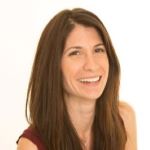
Jessica Fishman
February 22, 2017
By Jessica Fishman
While I was trying to prove my Jewish identity in order to be married in Israel, I came to understand that the concept of matrilineal descent that I once thought gave women power, did the exact opposite. ... In Judaism, one of the ways that women are controlled is through the concept of matrilineal lineage.
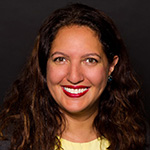
Sarah Eltantawi
February 14, 2017
By Jefferson Robbins
Teaching the history of the world's second-largest religion, Sarah Eltantawi, 2013 HBI scholar-in-residence, spends a lot of her time confronting preconceived notions — and often, plain ignorance. "I'm obviously aware that the study of Islam is one of the most fraught and controversial and least understood subjects in the country today," says Eltantawi, a Harvard-educated professor of religious studies at the Evergreen State College.
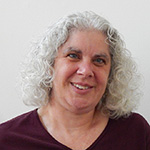
Gail Labowitz
February 3, 2017
By Gail Labovitz
According to the "quotes" section of Goodreads.com, it was E.B. White who said, "Explaining a joke is like dissecting a frog. You understand it better but the frog dies in the process." So, like any joke, this one will be a dead frog once I try to explain it – but since it's rather "inside baseball," I suspect many readers won’t understand it without an explanation: Rabbinical students in their final year of rabbinic training sometimes refer to themselves (or are referred to by others) as "erev rav."
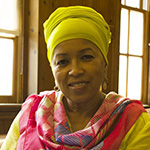
Debra Majeed
January 23, 2017
By Debra Majeed
For the past two years, I have enjoyed the privilege of active engagement with the Shalom Hartman Institute in Jerusalem and the U.S. While my initial impetus for participation centered on expanding knowledge on Judaism as practiced in one of the holiest regions for Muslims and engaging with Jewish women in Jerusalem, I never imagined just how profoundly my participation in the Muslim Leadership Initiative would influence the trajectory of my scholarship and research.
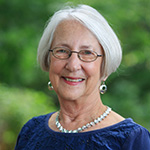
Janet Freedman
January 5, 2017
By Janet Freedman
Just about a year ago, I wrote two HBI blogs, "A Statement in Opposition to the NWSA Resolution on BDS," and "For the Women's Studies Association, the BDS Vote Was Over Before It Began," about my experiences as one of the lone voices speaking at the 2015 National Women's Studies Association conference in opposition to a Boycott, Divestment and Sanction resolution against Israel before the membership. The resolution passed by a large majority.